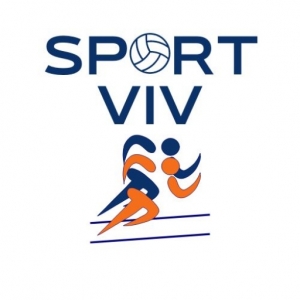

Grant Agreement no: 101133322 – HFTeam – ERASMUS – SPORT – 2023 – SSCP
The main objective of the “HFTeam” project is to increase the level of physical activity of employees with different disabilities in the EU and beyond with focuses on people who perform sedentary work and suffer longer effects of this type of working conditions. The specific issue that this project addresses is the rising trend of working from home, which was increasing before the COVID pandemic crisis and was accelerated by the effects of the pandemic. Project is innovative in the aspect that it addresses the specific sport/health needs of employees with disabilities. There are many different sport programs available, however there is very little materials and focus on those with disabilities who have extra barriers to overcome to participate in work sport activities.
The main output of the project “HFTeam” will be the developed sport program for employees with disabilities who perform sedentary work. The sport program will include two sets of exercises one which can be performed at home and one in the office. We will also create a handbook, which will include a comprehensive sport program for health prevention of sedentary employees with disabilities, best practices to improve the level of physical activity of employees with disabilities and a program of recommendations to improve office (ergonomics). Exercises would be specially designed, to include parts for stretching the neck, arms, legs and back, with special guidelines for employees with disabilities.
The ” HFTeam ” project is financed by the European Union. It will be implemented for 18 months, from 01.01.2024 until 31.06.2025. The coordinator of the project is the TREND-PRIMA, Zavod za raziskave in razvoj znanja, Maribor, Slovenia, and the project partners are Sport VIV, Samobor, Croatia, ÇEBDER (The Association of Unity in Diversity), Konya, Turkey and APS ASD MARGHERITA SPORT E VITA, Italy.
Funded by the European Union. Views and opinions expressed are however those of the author(s) only and do not necessarily reflect those of the European Union or the European Education and Culture Executive Agency (EACEA). Neither the European Union nor EACEA can be held responsible for them.
